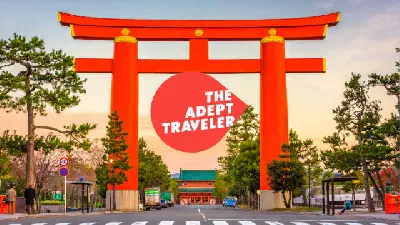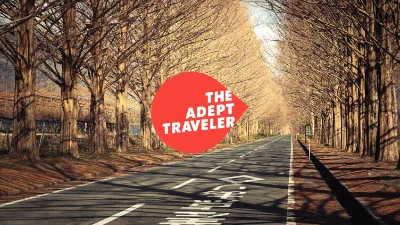South Korea
Consider embarking on an unforgettable journey and travel to South Korea, where ancient traditions merge effortlessly with cutting-edge modernity, creating an enchanting destination that beckons explorers from all corners of the globe. Nestled on the southern half of the Korean Peninsula, South Korea captivates travelers with its rich tapestry of cultural heritage, bustling urban centers, and serene natural landscapes. Discover the vibrant streets of Seoul, the capital city, brimming with world-renowned K-pop music, tantalizing street food, and iconic landmarks such as the Gyeongbokgung Palace and N Seoul Tower. For history buffs, the ancient cities of Gyeongju and Andong offer a mesmerizing glimpse into Korea’s past with their timeless temples, traditional hanok villages, and UNESCO World Heritage sites. Nature enthusiasts will find solace in the picturesque Korean countryside, from the scenic trails of Seoraksan National Park to the lush tea fields of Boseong. The coastal city of Busan is a must-visit for its stunning beaches, bustling fish markets, and vibrant nightlife. A journey to Jeju Island, often dubbed “South Korea’s Hawaii,” promises breathtaking volcanic landscapes, picturesque waterfalls, and pristine beaches perfect for a relaxing escape. Culinary adventurers will be thrilled by the diverse and delicious Korean cuisine, ranging from savory bulgogi and spicy kimchi to the soothing warmth of a bowl of Bibimbap. With an efficient transportation system, including the high-speed KTX trains, traveling across South Korea is both convenient and exhilarating, offering countless opportunities to immerse oneself in the nation's unique culture and hospitality. Whether you are a history lover, a nature enthusiast, a foodie, or someone simply seeking new experiences, South Korea stands out as an unparalleled travel destination that promises an extraordinary adventure. So pack your bags and set your sights on a memorable travel to South Korea, where every moment is a discovery, and every experience is a cherished memory.
The History of South Korea
South Korea, a nation steeped in rich history, offers an unparalleled travel experience for history enthusiasts. When you travel to South Korea, you embark on a journey that spans thousands of years, from the ancient kingdoms and dynasties to the modern, vibrant nation it is today. Imagine wandering through palaces that housed kings, exploring ancient temples, and walking paths worn by the feet of scholars, soldiers, and common folk over millennia. There is no better destination for those who crave a deep and insightful understanding of East Asian history and culture.
The earliest recorded history of South Korea begins with the founding of the mythical Gojoseon kingdom in 2333 BCE by the legendary Dangun. This kingdom laid the foundation for subsequent eras of Korean civilization. As you travel to South Korea, you'll encounter the remnants of these early periods in places like the Goguryeo tombs, which are adorned with elaborate frescoes that depict scenes from daily life and mythology. These UNESCO World Heritage sites offer a glimpse into the artistry and spirituality of ancient Koreans, making them a must-visit for anyone interested in antiquity.
Moving forward in history, the Three Kingdoms period saw the rise of Goguryeo, Baekje, and Silla, each contributing uniquely to Korean culture. Travel to South Korea, and you can explore the former Silla capital of Gyeongju, often referred to as "the museum without walls." Here, historical sites such as Bulguksa Temple and the Seokguram Grotto, both UNESCO World Heritage Sites, provide tangible connections to Korea's Buddhist heritage. The city is filled with ancient relics, tombs, and ruins that paint a vivid picture of a time when arts, culture, and religion flourished.
The Joseon Dynasty (1392-1910) was arguably the most influential period in shaping modern South Korea. Travel to South Korea to visit Seoul, where landmarks such as Gyeongbokgung Palace and Changdeokgung Palace stand as testaments to the architectural ingenuity of the Joseon era. The dynasty's commitment to Confucian ideals led to advancements in governance, science, and culture, with King Sejong the Great creating Hangeul, the Korean alphabet, which revolutionized the way Koreans communicate. Museums and cultural sites across Seoul offer interactive experiences that bring the Joseon period to life, making it an engaging experience for travelers of all ages.
Today, South Korea masterfully blends its historical legacy with modern advancements, creating a unique travel experience. Whether you're roaming the bustling streets of Seoul, exploring the historic city of Gyeongju, or visiting the demilitarized zone (DMZ) to understand the more recent aspects of Korean history, travel to South Korea is an opportunity to see how the past and present coexist. From its ancient roots to its rapid modernization, South Korea offers a compelling narrative that captivates and educates, inviting travelers to witness a nation where history is not just remembered, but actively lived.
The Culture of South Korea
South Korea boasts a vibrant and dynamic culture that seamlessly blends traditional customs with modern innovations. When you travel to South Korea, you'll discover a unique blend of ancient palaces, bustling markets, and technologically advanced cities. The people of South Korea are known for their hospitality, making sure that all visitors feel welcome. Their rich history, delicious cuisine, and artistic heritage offer a kaleidoscope of experiences to any traveler eager to dive deep into the heart of Korean culture.
Traditional and Modern Harmony
In South Korea, you'll find an exquisite balance between tradition and modernity. Ancient palaces such as Gyeongbokgung and Changdeokgung, with their stunning architecture, offer a glimpse into the country's royal past. These historic sites are often juxtaposed against sprawling metropolises like Seoul and Busan, where cutting-edge technology and futuristic skyscrapers dominate the skyline. This contrasts creating a compelling dynamic that makes traveling to South Korea remarkably fascinating. Cultural landmarks like traditional Hanok villages sit side by side with modern shopping districts, creating a diverse and enriching travel experience.
Culinary Delights
The culinary scene in South Korea is an adventure in itself. Korean cuisine is renowned for its complex flavors and variety, from the savory depths of a perfectly prepared bibimbap to the spicy kick of kimchi. Street food markets like Gwangjang Market offer an array of dishes such as tteokbokki (spicy rice cakes), hotteok (sweet pancakes), and an assortment of skewered meats and fresh seafood. Dining in South Korea is a communal experience, often bringing people together to share meals and embrace the spirit of "Jeong" – the deep sense of connection and affection that Koreans have for each other. A trip to South Korea would be incomplete without indulging in its rich culinary tapestry, each meal telling a story of the land and its people.
Arts and Festivals
South Korea is a land of festivals and artistic expression that vividly showcases its rich cultural heritage. Annual events such as the Boryeong Mud Festival and the Seoul Lantern Festival attract millions of visitors from around the globe. The country's commitment to preserving its traditional arts is evident in the numerous cultural performances featuring classic dances and music. The K-pop phenomenon has also played a significant role in bringing modern South Korean culture to the global stage. When you travel to South Korea, you'll have the opportunity to witness and participate in these vibrant celebrations, experiencing firsthand the creativity and spirit of the Korean people.
Warm and Hospitable People
One of the most compelling reasons to travel to South Korea is its people. South Koreans are known for their warmth, kindness, and generosity. Whether you're navigating a bustling city or exploring a serene countryside, you'll find that locals are always willing to lend a helping hand. This hospitality extends to social customs as well, where respect and courtesy are deeply ingrained in everyday interactions. As you travel to South Korea and immerse yourself in its culture, you'll undoubtedly form meaningful connections and gain deeper insight into what makes this country so enchanting.
The Food of South Korea
Travel to South Korea and immerse yourself in a culinary experience that will tantalize your taste buds and leave you yearning for more. South Korea offers a unique blend of flavors that embody both traditional and modern culinary practices. From the bustling streets of Seoul to the serene landscapes of Jeju Island, the gastronomic adventure is a fundamental part of the charm that beckons travelers from all over the world. Consider making South Korea your next travel destination if you're looking to explore a rich tapestry of flavors that are both familiar yet novel.
Korean Street Food: A Feast for the Senses
When you travel to South Korea, the vibrant street food scene is an experience you absolutely cannot miss. Imagine walking through busy streets lined with food stalls offering mouth-watering treats such as Tteokbokki (spicy rice cakes), Odeng (fish cake skewers), and hotteok (sweet pancakes). The streets come alive with the sizzle of frying, the aroma of various meats and vegetables, and the chatter of locals and tourists alike. Bite into crispy Korean fried chicken, savor the spicy kick of kimchi, or indulge in the sweet softness of bungeoppang, a fish-shaped pastry filled with red bean paste. Each street corner in South Korea tells a different culinary story, making every mealtime an adventure.
A Blend of Tradition and Innovation
South Korean cuisine is a beautiful blend of tradition and innovation. Ancient culinary practices are preserved and cherished in dishes like Bibimbap and Bulgogi, while contemporary chefs are pushing the boundaries with inventive fusion dishes. Visit a traditional Hanok village where you can enjoy a temple stay and partake in a traditional Korean meal of rice, soup, and various side dishes, collectively known as banchan. Contrast this with a visit to modern-day Gangnam, where cutting-edge restaurants redefine Korean food with global influences, combining elements like Korean barbecue with international flavors. Travel to South Korea to experience how the past and future meld seamlessly in every bite.
Unique Dining Experiences
Beyond just the food, South Korea offers unique dining experiences that add to the allure of the cuisine. Have you ever dined in a traditional Korean BBQ restaurant where you grill your own meat right at the table? Or attended a royal court meal at a Joseon dynasty-era palace? For those seeking novelty, themed cafes like the Hello Kitty Café or dog and cat cafes provide a whimsical twist to your culinary journey. Then there's Jeju Island, famous for its black pork and seafood, where you can dine with an ocean view. Travel to South Korea and elevate your dining experiences, making every meal a story worth sharing.
In South Korea, food is not just sustenance; it's an integral part of the culture that brings people together. Whether you're digging into a hearty bowl of Samgyeopsal with friends or sampling an elegant multi-course meal in a fine dining establishment, the culinary experiences in South Korea are diverse and unforgettable. So, if you're looking to travel somewhere that offers both rich traditions and modern culinary delights, South Korea should be at the top of your list.
What to See and Do in South Korea
Travel enthusiasts yearning for a blend of ancient traditions and modernity should consider adding South Korea to their bucket list. Whether you're in the bustling streets of Seoul or the serene temples of Gyeongju, there's something for everyone. Here's a detailed guide to the top 10 things every traveler should experience when they travel to South Korea.
1. Explore Gyeongbokgung Palace - Seoul, South Korea
Your travel to South Korea is incomplete without visiting the iconic Gyeongbokgung Palace in Seoul. This grand palace, originally constructed in 1395, offers a glimpse into the Joseon Dynasty. Wander through its courtyards and meticulously restored buildings, and don't miss the changing of the guard ceremony. A guided tour can provide deeper insights into its fascinating history.
2. Discover Bukchon Hanok Village - Seoul, South Korea
Immerse yourself in traditional Korean culture by visiting Bukchon Hanok Village located in Seoul. This historic village is home to hundreds of hanoks, traditional Korean houses, dating back to the Joseon Dynasty. Roam the narrow alleyways, visit the small museums, and perhaps even stay overnight in one of these beautifully preserved homes for a unique travel experience.
3. Shop at Myeongdong - Seoul, South Korea
An essential stop for fashion lovers traveling to South Korea is Myeongdong in Seoul. This bustling shopping district is packed with international brands, Korean skincare shops, and unique boutiques. Try the street food such as tteokbokki (spicy rice cakes) while hunting for the latest fashion trends. Myeongdong is also known for its vibrant nightlife.
4. Hike Mount Namsan and Visit N Seoul Tower - Seoul, South Korea
For panoramic views of the city, hike up Mount Namsan in Seoul. At the summit, you'll find the N Seoul Tower, a popular observatory offering breathtaking views of the metropolitan skyline. The hike is moderate and rewarding, providing scenic trails and the chance to escape the city's hustle and bustle. The tower is also a romantic spot for couples.
5. Relax in Jeju Island - Jeju, South Korea
Travel to South Korea is incomplete without a trip to Jeju Island. Known as South Korea’s Hawaii, Jeju offers stunning beaches, volcanic landscapes, and unique cultural sites like the Jeju Volcanic Island and Lava Tubes, a UNESCO World Heritage site. Whether you explore Hallasan Mountain or unwind at one of its luxurious resorts, Jeju promises a perfect retreat.
6. Delve into History at Gyeongju's Bulguksa Temple - Gyeongju, South Korea
Often referred to as a "museum without walls," Gyeongju is a treasure trove of historical sites. The Bulguksa Temple is a significant relic of the Silla Dynasty and a UNESCO World Heritage site. The temple complex, adorned with intricate carvings and Buddha statues, is a spiritual haven and an architectural masterpiece perched amid lush mountains.
7. Visit the Demilitarized Zone (DMZ) - Near Seoul, South Korea
For a sobering experience, take a tour to the Demilitarized Zone (DMZ), one of the last remnants of the Cold War. Located an hour from Seoul, the DMZ tour includes stops at the Joint Security Area (JSA), the 3rd Infiltration Tunnel, and the Dora Observatory. It's a poignant reminder of Korea's divided history and offers a unique perspective on the country's complex past.
8. Enjoy the Cherry Blossoms at Jinhae - Jinhae, South Korea
If you're traveling to South Korea in the spring, the cherry blossom festival in Jinhae is a must-see. The small city of Jinhae comes alive with blooming cherry trees, attracting visitors from across the globe. Stroll through the picturesque Yeojwacheon Stream and admire the blossoms framing the Gyeonghwa Station, a disused train station surrounded by cherry blossom trees.
9. Wander Through the Fish Markets of Busan - Busan, South Korea
Travel to South Korea's coastal city of Busan to experience some of the freshest seafood at the Jagalchi Fish Market. Engage with the local vendors, sample a variety of fish and shellfish, and perhaps even select your meal to be cooked on the spot. The market's lively atmosphere and ocean views make it a memorable culinary journey.
10. Hike through Seoraksan National Park - Gangwon Province, South Korea
Nature lovers should visit Seoraksan National Park, located in Gangwon Province. This national park is celebrated for its stunning landscapes, featuring jagged peaks, lush valleys, and crystal-clear streams. Hiking trails of varying difficulties lead you to breathtaking viewpoints, ancient temples, and the famous Ulsanbawi Rock. It's a perfect destination for outdoor enthusiasts traveling to South Korea.
Each of these experiences offers a distinct taste of what makes South Korea a compelling destination. Make sure to plan ahead and include these top attractions and activities in your itinerary to ensure a memorable and enriching travel experience when you travel to South Korea.
Why You Should Travel to South Korea
Travelers from across the globe are captivated by South Korea for an array of compelling reasons, making it a must-visit destination for anyone passionate about uncovering new cultures. One of the key attractions of South Korea is its seamless blend of traditional and modern elements. Ancient palaces and temples coexist harmoniously with cutting-edge skyscrapers and bustling urban centers. Cities like Seoul offer a dynamic landscape where you can explore vibrant street markets by day and relax in traditional tea houses by night. The architecture alone, from the historical Gyeongbokgung Palace to the contemporary Dongdaemun Design Plaza, provides an insightful peek into the country's diverse heritage.
Another reason why people love to travel to South Korea is its rich and diverse culinary scene. Korean cuisine is renowned for its unique flavors and healthy ingredients. Food enthusiasts will find themselves in a gastronomic paradise, sampling everything from sizzling street food stalls offering delicacies like Tteokbokki and Hotteok to high-end restaurants specializing in Korean BBQ and Bibimbap. Visiting traditional markets such as Gwangjang Market in Seoul allows you to experience authentic Korean foods in their most genuine forms, making culinary exploration a quintessential part of any travel itinerary here.
Moreover, the natural beauty of South Korea serves as a major draw for travelers. From the picturesque landscapes of Jeju Island, often referred to as the "Hawaii of South Korea," to the serene and stunning expanse of the Nami Island, nature lovers have countless options for outdoor activities. South Korea's four distinct seasons offer unique and delightful experiences: cherry blossoms in spring, lush green hikes in summer, stunning foliage in fall, and enchanting snowy landscapes in winter. Whether you're trekking through the Seoraksan National Park or cycling along the Han River, the scenic allure is undeniable.
Reasons You Must Travel to South Korea
Your travel to South Korea will be nothing short of extraordinary, offering an unparalleled mix of cultural immersion, culinary adventures, and natural wonders. Experiencing firsthand the unique synergy between ancient traditions and modern innovation will leave a lasting impression on you. The country's impeccable hospitality, evident in the courteous and friendly demeanor of the locals, will make your journey even more memorable. South Korea promises a fulfilling and diverse travel experience that is both enriching and fun, setting it apart as a premier destination for all types of travelers. Don't miss the chance to explore this fascinating country and create memories that will last a lifetime.
Tips & Tricks for Traveling in South Korea
Traveling to South Korea opens up a world of vibrant culture, delectable cuisine, and awe-inspiring landscapes. Whether you are planning a short visit or an extended stay, these tips and tricks will help you maximize your enjoyment and navigate the intricacies of traveling in South Korea.
Learn Basic Korean Phrases
While many young South Koreans can speak English, particularly in urban areas, knowing basic Korean phrases can make your travel experience more enjoyable and smooth. Understanding simple greetings, how to ask for directions, and polite expressions will significantly enhance your interactions and show respect for the local culture.
Purchase a T-Money Card
A T-Money card is a must-have for convenient travel in South Korea. This rechargeable smart card can be used on nearly all public transportation systems, including buses, subways, and taxis. It can also be used for payment in convenience stores, vending machines, and some tourist attractions, simplifying your transactions.
Utilize Public Transportation
Public transportation in South Korea is incredibly efficient, safe, and budget-friendly. The subway systems in major cities like Seoul and Busan are extensive, with signs and announcements in English. Buses provide another reliable option for traveling between cities. Download apps like KakaoMap or Naver Map to help navigate routes and schedules easily.
Stay in Hanok Accommodations
For an immersive cultural experience, consider staying in a traditional Korean house known as a Hanok. These charming homes offer a glimpse into Korean culture, with features such as ondol (underfloor heating) and serene courtyard gardens. Cities like Seoul, Jeonju, and Bukchon Village offer excellent Hanok stays.
Explore Local Cuisine
South Korea is renowned for its tantalizing food scene. From street food stalls to high-end restaurants, the country offers a vast array of culinary delights. Don’t miss out on trying dishes like bulgogi, bibimbap, and kimchi. Street markets like Gwangjang Market in Seoul are excellent spots to sample various foods.
Download Essential Apps
Smartphone apps can significantly enhance your travel to South Korea. Essential apps include KakaoTalk for communication, KakaoMap or Naver Map for navigation, Subway Korea for subway routes, and MangoPlate for restaurant reviews. Having these apps at your fingertips will make your travel experience smooth and stress-free.
Take Advantage of Free WiFi
Free WiFi is widely available in South Korea, making it easy to stay connected. Public places such as cafes, restaurants, subways, and even some streets offer free WiFi. Consider renting a pocket WiFi device or a local SIM card for dependable internet access everywhere you go.
Embrace Local Etiquette
You can enhance your travel experience in South Korea by embracing local manners and customs. For example, bowing slightly when greeting someone shows respect. Removing your shoes before entering someone’s home and using both hands when giving or receiving something are also seen as polite gestures.
Visit Less Touristy Places
While Seoul and Busan are incredible, leaving the beaten path allows you to experience South Korea's hidden gems. Consider exploring scenic locations like Jeju Island, Gyeongju—a historic city, or the tea plantations in Boseong. These destinations offer unique cultural and natural experiences away from the crowded tourist spots.
Use Translation Tools
Language barriers can be a challenge, but modern technology offers quick solutions. Translation apps like Google Translate or Papago, developed by Naver, can help you understand signs, menus, and even live conversations. These tools are invaluable for non-Korean speakers traveling in South Korea.
By following these tips and tricks, you can enrich your travel to South Korea and enjoy the country's captivating culture, cuisine, and landscapes to the fullest. Whether you're exploring bustling cities or tranquil countryside, South Korea promises an unforgettable adventure.
Other Places You Might Like
Kyoto, Japan - Kyoto is a paradise for culture enthusiasts who have a deep appreciation for traditional architecture and historical significance. Much like South Korea's ancient palaces and temples, Kyoto boasts an array of meticulously preserved sites such as the Kinkaku-ji (Golden Pavilion), Fushimi Inari Shrine, and Ryoan-ji Temple. The city is abundant in serene gardens, charming teahouses, and centuries-old wooden structures. If you love exploring the intersection of history and modernity in South Korea, Kyoto's blend of modern comforts with rich heritage will captivate you.
Taipei, Taiwan - Taipei seamlessly blends the old with the new, mirroring much of what travelers appreciate in South Korea. From the bustling streets filled with night markets like Shilin Night Market to the ancient Longshan Temple, Taipei has layers of culture waiting to be unveiled. The dynamic food scene, offering everything from traditional Taiwanese beef noodle soup to bubble tea, provides a culinary journey comparable to South Korea's famous street food and vibrant marketplaces like Gwangjang Market.
Singapore, Singapore - A city-state like no other, Singapore offers a unique mix of cultures and impeccable urban planning that will resonate with visitors who enjoy the organized yet vibrant life of South Korean cities such as Seoul. The pristine streets, extravagant shopping malls, and a plethora of hawker centers serving delectable food options create an environment where modernity meets tradition. The futuristic Gardens by the Bay, Marina Bay Sands, and historical areas like Chinatown and Little India provide a diversified travel experience.
Shanghai, China - Shanghai combines ultramodern architecture with hints of its colonial past, much like cities in South Korea. The Pudong skyline, with its towering skyscrapers, contrasts beautifully with the historic Bund, a waterfront area lined with colonial-era buildings. Shopping enthusiasts will find joy in Nanjing Road, one of world’s longest and most vibrant shopping districts, akin to Myeongdong in Seoul. Traditional gardens such as the Yu Garden offer a peaceful retreat from the city's fast-paced life.
Bangkok, Thailand - If the allure of South Korea’s bustling urban centers and ornate temples fascinates you, Bangkok will not disappoint. From the stunning Grand Palace and Wat Arun to the sprawling Chatuchak Market, Bangkok offers a mixture of the old and the new. The city's vibrant street food scene, bustling nightlife, and river cruises offer an experience that is both exhilarating and enchanting, similar to the vivacious energy found in South Korea’s metropolises.
Hong Kong, Hong Kong - Hong Kong’s vitality and diverse cultural heritage make it a striking parallel to South Korean cities. With its iconic skyline punctuated by skyscrapers, Victoria Peak providing panoramic views, and the bustling Mong Kok district, Hong Kong is a perfect blend of urban sophistication and traditional pockets. Visitors can enjoy a ferry ride across Victoria Harbour or explore traditional markets and temples that offer a glimpse into its storied past.
Hanoi, Vietnam - For those who revel in the blend of history and modern progress found in South Korea, Hanoi offers a similarly rewarding experience. The city’s Old Quarter is a maze of narrow streets where the architecture tells stories of French colonial influence. Hoan Kiem Lake and the Temple of Literature echo the serene spots found in South Korea. Hanoi’s burgeoning coffee culture, street food stands, and night markets present an engaging and vibrant cultural experience.
Kuala Lumpur, Malaysia - A melting pot of cultures and a beacon of modernity, Kuala Lumpur will appeal to those who thrive on the dynamic energy of South Korean cities. The iconic Petronas Twin Towers dominate the skyline, while attractions such as Batu Caves and the Islamic Arts Museum reveal the country’s cultural depth. Kuala Lumpur’s food scene is a tantalizing mix of Malaysian, Indian, and Chinese cuisines, ensuring a gastronomic adventure comparable to South Korea’s culinary delights.
Incheon, South Korea

Jeju Island, South Korea

Jeonju, South Korea

Seoul, South Korea

Korean Air Power Bank Use Ban Starts Jan 26

South Korea Rail Strike Averted December 11 Trains

South Korea Rail Metro Strike Cuts From December 11

Starlink WiFi Coming To Korean Air Group Fleets By 2027

2028 World Cruise From Miami To Athens With Azamara

China Japan Flight Cuts Disrupt December Trips

Seoul Subway Strike Threatens December 12 Travel

South Korea Extends K-ETA Exemption Through 2025

G Adventures Black FriYAY Sale Up To 30% Off

Global Guardian Flags Geopolitics as Top Travel Risk

Seabourn Announces Exciting New Luxury Cruise Itineraries for 2026

Globus Launches New 2025 Independent Tours in Asia

Unveiling Seabourn's Luxurious Global Expeditions for 2024-25

Regent Seven Seas Cruises Unveils New Grand Voyages for 2025 and 2026

Travel News: Mexico's Beaches, Oceania in Asia-Pacific, and the French Ski Season

Is It Safe to Drink the Water in Asia? Comprehensive Guide

Essential Power Converters for American Travelers to Asia

Best Times to Travel to Asia: Avoid Summer Crowds and Costs

Visa Requirements for U.S. Travelers: A Global Guide

Driving in Asia: A Detailed Guide for U.S. Travelers

